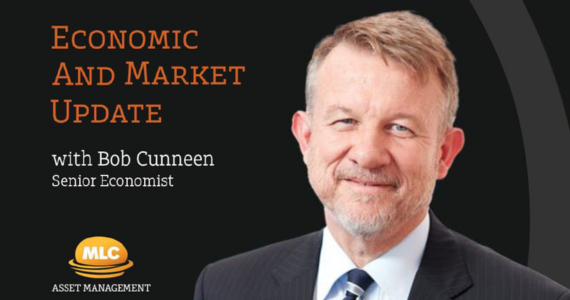Key events in November
- Global share prices made strong gains in November, but this was primarily driven by Wall Street’s strength. Notably both the US and Australian key share indexes have made record highs.
- US shares continued their strong returns for the year. Optimism on the potential for lower corporate taxes and the extension of personal tax cuts with Donald Trump’s election as US President was the key positive contributor to US share gains. Enthusiasm on the potential of ‘Artificial Intelligence’ (AI) remains a major tailwind to Wall Street. The US central bank again proved supportive by cutting interest rates by a further 0.25% in November after September’s 0.5% reduction. Comments from the incoming President suggesting an immediate 25% tariff on Canada and Mexico as well as 10% for China did little to dent US share prices.
- European share prices delivered more modest gains given political concerns. Germany’s coalition government collapsed with a new election called for February 2025 while the French government is struggling to pass their budget through parliament. The escalating Russia-Ukraine conflict on Europe’s doorstep also remains a key challenge given concerns over energy supplies with winter approaching.
- Chinese shares disappointed despite better production and retail spending. The national government’s pledge of support for China’s local government debt and property market is yet to convince investors.
- Australian shares made strong gains to a record high. The Information Technology sector surged by 10.2% with AI enthusiasm. Both the Utilities and Financial sectors also benefitted from investors chasing yield. By contrast, the Resources sector disappointed with a -3.3% negative return as concerns over China and Europe’s growth prospects weighed heavily.
- Australia’s mild economic performance with lower inflation continued in November. Employment rose solidly and there was also a slow revival in retail spending. More encouraging is that Australia’s annual consumer inflation came in at 2.1% in October which is the lowest result since 2021. Increased electricity subsidies and rent assistance from the Federal and State Governments as well as lower automotive fuel costs were the key factors for this subdued inflation result.
Asset class summary
Asset class returns in Australian dollars – periods to 30 November 2024
|
CYTD % |
1 month
% |
3
months % |
1 year % |
3 years pa % | 5 years pa % | 10 years pa % | |
| Australian shares | 14.9 | 3.7 | 5.5 | 23.2 | 9.1 | 8.2 |
9.1 |
| Global shares (hedged) | 21.6 | 4.1 | 4.8 | 26.3 | 7.5 | 10.4 |
9.6 |
| Global shares (unhedged) | 26.0 | 4.3 | 8.1 | 28.4 | 10.8 | 12.2 |
12.3 |
| Emerging markets (unhedged) | 12.8 | -3.1 | 2.4 | 13.9 | 1.6 | 4.0 |
6.0 |
| Australian property securities | 24.9 | 2.4 | 6.2 | 39.2 | 7.1 | 6.4 |
9.7 |
| Global property securities (hedged) | 9.8 | 2.6 | 1.2 | 18.8 | -1.7 | -0.1 |
3.5 |
| Global listed infrastructure (hedged) | 18.2 | 3.2 | 4.0 | 22.1 | 6.1 | 4.6 |
6.5 |
| Australian bonds | 2.4 | 1.1 | -0.5 | 5.2 | -0.9 | -0.6 |
2.1 |
| Global bonds (hedged) | 3.1 | 1.2 | 0.7 | 6.2 | -1.8 | -0.3 |
2.0 |
| Global high yield bonds (hedged) | 6.0 | 1.0 | 1.2 | 9.4 | 1.6 | 2.9 |
4.4 |
| Australian inflation-linked bonds | 2.0 | 0.8 | -0.1 | 4.7 | 2.2 | 2.0 |
2.7 |
| Cash | 4.1 | 0.4 | 1.1 | 4.5 | 3.1 | 1.9 |
1.9 |
| AUD/USD | -4.5 | -0.5 | -4.0 | -1.7 | -2.8 | -0.7 |
-2.7 |
Past performance is not a eliable monthnicator f future perform
ane.
Sources: Ausralian shares – S&P/ASX 300 Total Return Index; Global shares (hedged) – MSCI All Countries World (A$ hedged, Net); Global shares (unhedged) – MSCI All Countries World in A$ (Net); Emerging markets – MSCI Emerging Markets in A$ (Net); Australian property securities – S&P/ASX 300 A-REIT Accumulation Index; Global property securities – FTSE EPRA/NAREIT Developed (A$ hedged, Net); Global listed infrastructure – FTSE Global Core Infrastructure 50/50 (Hedged $A); Australian bonds – Bloomberg AusBond Composite 0+ Yr Index; Global bonds (A$ hedged) – Barclays Global Aggregate (A$ hedged, Gross); Global high yield bonds (A$ hedged) – Barclays US High Yield Ba/B Cash Pay x Financials ($A Hedged); Australian inflation-linked bonds – Bloomberg AusBond Inflation Government 0+ Yr Index; Cash – Bloomberg AusBond Bank Bill Index; AUD/USD – WM/Reuters Daily (4 pm GMT).
Key events in global markets over the last three months to November
Global shares achieved strong gains over the quarter despite concerns over the escalating conflicts in the Middle East and Ukraine. Optimism on AI prospects, lower inflation and key central banks cutting interest rates were the key drivers for higher global share prices. Global shares (unhedged) recorded an exceptionally strong 8.1% return with the added benefit of a falling Australian dollar. Global shares (hedged) delivered a strong 4.8%.
Wall Street’s benchmark S&P 500 Index made historic highs and delivered a very strong 7% quarterly return in local currency terms with the exuberant optimism on AI and technology shares.
European shares disappointed with a -3.1% negative return despite lower inflation and the European Central Bank (ECB) cutting interest rates. Slow economic growth and modest corporate profits are weighing on Europe.
Asian share markets delivered mixed performances. Chinese shares made an extraordinary recovery in September which has allowed China’s MSCI Index to deliver an impressive 11.6% quarterly return in local currency terms. Finally, the Chinese central bank has responded to slow economic activity and weak property markets by cutting interest rates and pledging supportive measures for the struggling property market.
However, Japanese share markets delivered a flat performance for the quarter in local currency terms given concerns over higher interest rate settings by the Japanese central bank.
Global bonds (hedged) posted a sedate 0.7% quarterly return. While government bond yields have risen sharply in October, the resilience of corporate bonds cushioned returns. Australian bonds delivered a weak
-0.5% return given a more cautious assessment of the prospects for lower interest rates in coming months.
Key events in Australia over the last three months to November
Australian shares delivered a very strong quarterly return of 5.5%. The Information Technology sector made an exceptionally strong quarterly return of 13.4% on AI optimism. Financial sector shares which include the banks also made a very strong 10.5% quarterly gain. Even the Resource sector made a solid 2.4% gain on hopes that China’s stimulus measures will boost demand for Australia’s mineral exports. However, there were some major disappointments. Consumer Staples fell sharply with a -7.4% return as both Coles and Woolworths warned that consumers are trading down to cheaper products. The Energy sector delivered a negative return of -5.2% given falling global oil prices.
Australia’s economy continued to display subdued economic activity with sluggish consumer spending and housing construction. The negative impact of high consumer prices, mortgage interest rates and rents continued to squeeze household budgets. However, lower inflation of 2.1% in the year to 30 September 2024 suggests that the Reserve Bank of Australia should be open to lowering interest rates in early 2025.
Global prospects
Global share prices have made very strong gains this year despite some strong headwinds. The enthusiasm for AI and technology are the key positive contributors to share prices. There is also confidence that inflation is gradually falling across the world which allows central banks to cut interest rates. A lower interest rate environment should over time be more supportive of corporate profits and thereby share prices.
However, these exuberant expectations may be challenged by considerable global political risks over coming months with the continuing Russian-Ukraine war as well as widening conflict in the Middle East. The return of Donald Trump to the White House in January 2025 could also generate concerns for the global economy with the imposition of large tariff increases. Global economic activity and investor sentiment are likely to be tested by a new US President with a capacity to shoot from the lips and keyboard as well as the hip.
Given these complex and significant risks, investors should maintain a disciplined and diversified strategy.
Important information
This communication is provided by MLC Investments Limited (ABN 30 002 641 661, AFSL 230705) (MLC), part of the Insignia Financial Group of companies (comprising Insignia Financial Ltd, ABN 49 100 103 722 and its related bodies corporate) (‘Insignia Financial Group’). An investment with MLC does not represent a deposit or liability of, and is not guaranteed by, the Insignia Financial Group.
This information may constitute general advice. It has been prepared without taking account of an investor’s objectives, financial situation or needs and because of that an investor should, before acting on the advice, consider the appropriateness of the advice having regard to their personal objectives, financial situation and needs.
Past performance is not a reliable indicator of future performance. Share market returns are all in local currency.
Any opinions expressed in this communication constitute our judgement at the time of issue and are subject to change. We believe that the information contained in this communication is correct and that any estimates, opinions, conclusions or recommendations are held or made as at the time of compilation. However, no warranty is made as to their accuracy or reliability (which may change without notice), or other information contained in this communication.
This information is directed to and prepared for Australian residents only.
MLC may use the services of any member of the Insignia Financial Group where it makes good business sense to do so and will benefit customers. Amounts paid for these services are always negotiated on an arm’s length basis. MLC relies on third parties to provide certain information and is not responsible for its accuracy, nor is MLC liable for any loss arising from a person relying on information provided by third parties.
Bloomberg Finance L.P. and its affiliates (collectively, “Bloomberg”) do not approve or endorse any information included in this material and disclaim all liability for any loss or damage of any kind arising out of the use of all or any part of this material.
The funds referred to herein is not sponsored, endorsed, or promoted by MSCI, and MSCI bears no liability with respect to any such funds.


